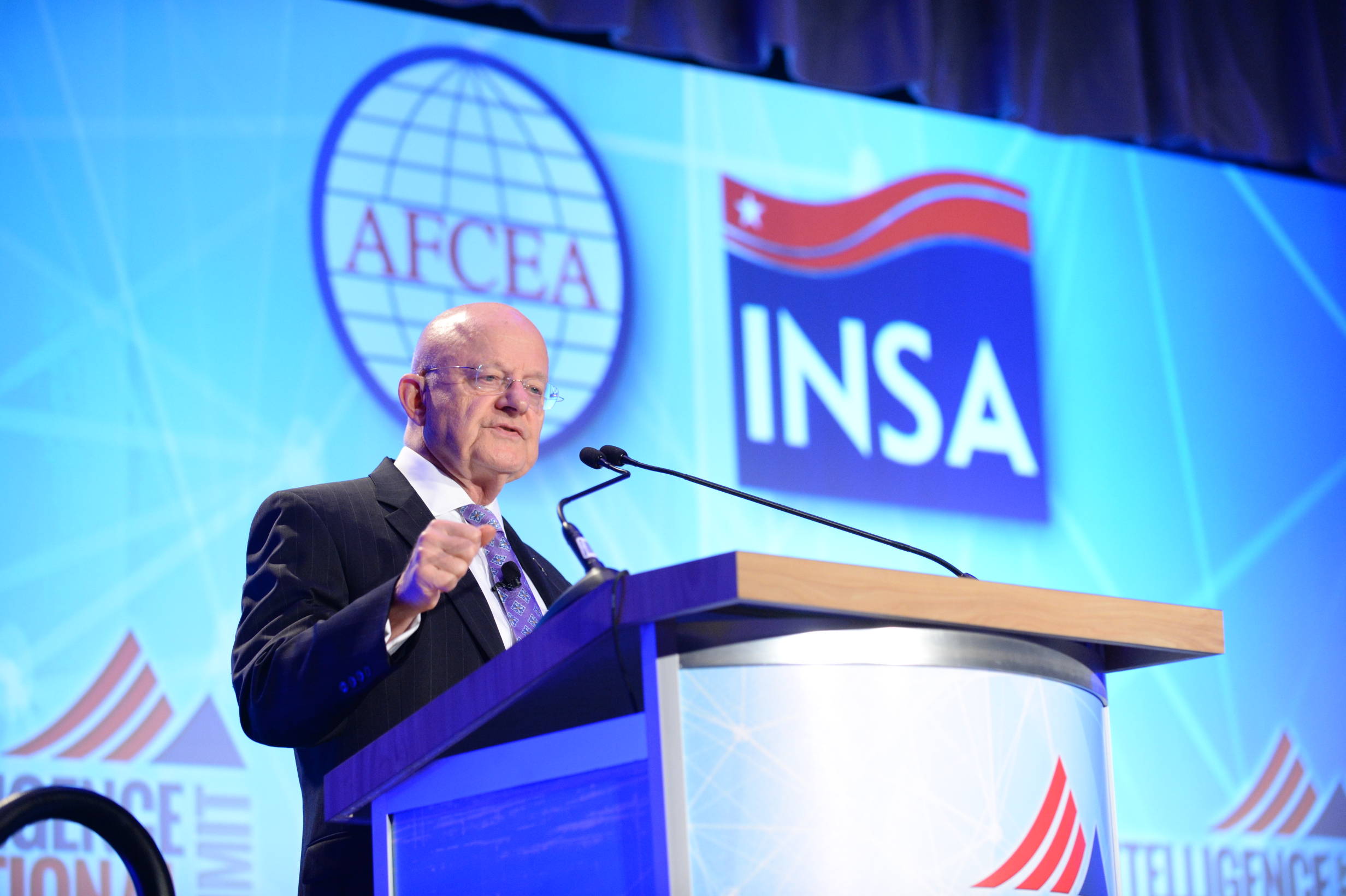
Intelligence and national security summit 2016 jim clapper hail and farewell.
US Director of National Intelligence James Clapper opened the Intelligence and National Security Summit with a keynote that served also as a kind of valediction delivered as he nears the end of his tenure as DNI.
He warned, as one would expect, of increasing international turmoil and the challenges those present for national security. Instability in Africa served as his example, but he noted that similar observations—transnational terrorism, uncertain civil societies, unstable regimes, sharpening competition for essential resources (driven, he said, by climate change)—could be made about other regions as well: "Nearly everywhere the Intelligence Community can point out the potential for collapses." And traditional adversaries Russia and China with continue to challenge the US.
There are other, more benign sources of change and uncertainty. Technological advance and its attendant economic consequences (he mentioned the growth of the gig economy seen in enterprises like Uber as particularly significant) will disrupt familiar ways of life and commerce in ways that are difficult to foresee.
But his discussion of global instability was a prelude to his longer point about the important role the Intelligence Community plays in Presidential transitions. The next President will be dropped into this unstable, uncertain environment. Clapper sounded a note of reassurance about the next Administration—whoever wins the election, "It'll be OK." He met with the White House Chief of Staff and the two Presidential transition teams two weeks ago, and he found them all to be "sober and professional." He said that the United States has a long record of orderly transition of power, going back to George Washington. He stressed that the Intelligence Community represents stability in such transitions.
Our nation, he said, has held a very public conversation about the Intelligence Community's work. Clapper thinks, however, that we've lost sight of the central question: why do we conduct intelligence in the first place? The answer to that question is this: we do intelligence to reduce uncertainty for our decision-makers, "from the Oval Office to the foxhole." The Intelligence Community provides a shared understanding of the facts and the situation. The next President will step into the Oval Office with the best understanding of the world situation we can provide, Clapper insisted. Preparing the Presidential transition teams is part of delivering that understanding.
Clapper drew a sharp distinction between giving the transition teams intelligence product and giving them classified briefings. The Intelligence Community is doing the latter, not the former. The history of doing so goes back to the Truman Administration—President Truman felt himself woefully ill-informed when he took office, and was determined that future presidents should arrive in the White House better briefed. Such preparation has been conducted during every election since 1952.
Clapper noted that the briefings for the transition teams are distinct from the President's daily briefing. Two distinct teams prepare these—and the candidate briefing team does not coordinate with the White House. In order to reduce the possibility that candidate briefings might be politically shaped, they are prepared only by career intelligence professionals.
In closing, Clapper quoted President Johnson's maxim that it was easy to do the right thing, but very hard to know what the right thing to do was. The Intelligence Community's job is to give the President the intelligence he needs to make his decision. It's not, Clapper said, its job to tell him what's right. And he closed with an expression of hope that the Intelligence Community would enable the next President to make sound decisions.
